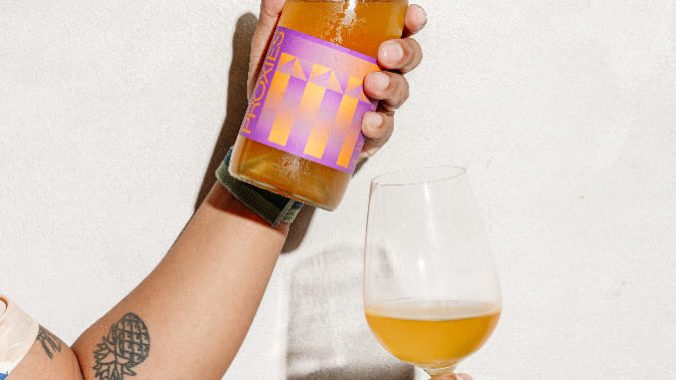An Orange Wine for the Sober-Inclined
Photo courtesy of Acid League
Over the past few years, non-alcoholic wines have flooded the market, hoping to appeal to the growing number of people who are either attempting to stop drinking alcohol altogether or who are just looking for ways to limit their intake. But in my humble opinion, most non-alcoholic options still have a long way to go before they appeal to people who are actually into wine. Oftentimes, these “wines” taste nothing like actual wine, and for me, they leave a lot to be desired. I’d rather just grab a can of LaCroix if I’ve decided not to indulge for the night.
But some brands have surprised me, one of those being Proxies from Acid League. These wine-adjacent, alcohol-free drinks do not purport to be wine, but they attempt to function like wines. Because of the unique blends of ingredients, they sometimes come surprisingly close to a decent bottle of the real stuff. Although the brand has boasted several different whites, reds and rosés for a while now, a recent collaboration has launched the brand into in all-new territory.
Proxies has joined forces with Miguel de Leon, the 2021 Michelin sommelier of the year. After working at iconic restaurants like Chez Panisse and Momofuku, de Leon became the wine director at New York’s Pinch Chinese. He’s now released a new Proxies flavor, Vinta, a non-alcoholic beverage that’s meant to imitate the flavor of skin-contact wine.
-

-

-

-

-

-

-

-

-

-

-

-

-

-

-

-

-

-

-

-

-

-

-

-

-

-

-

-

-

-

-

-

-

-

-

-

-

-

-

-








































